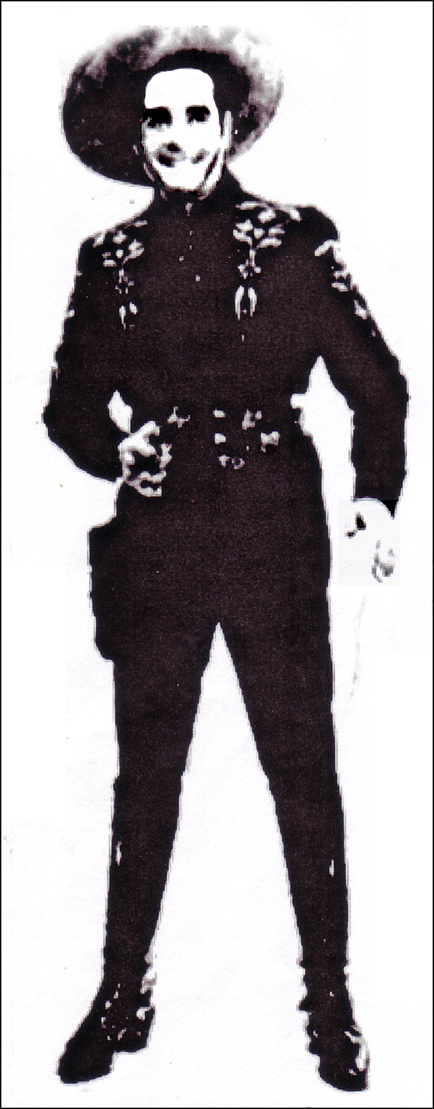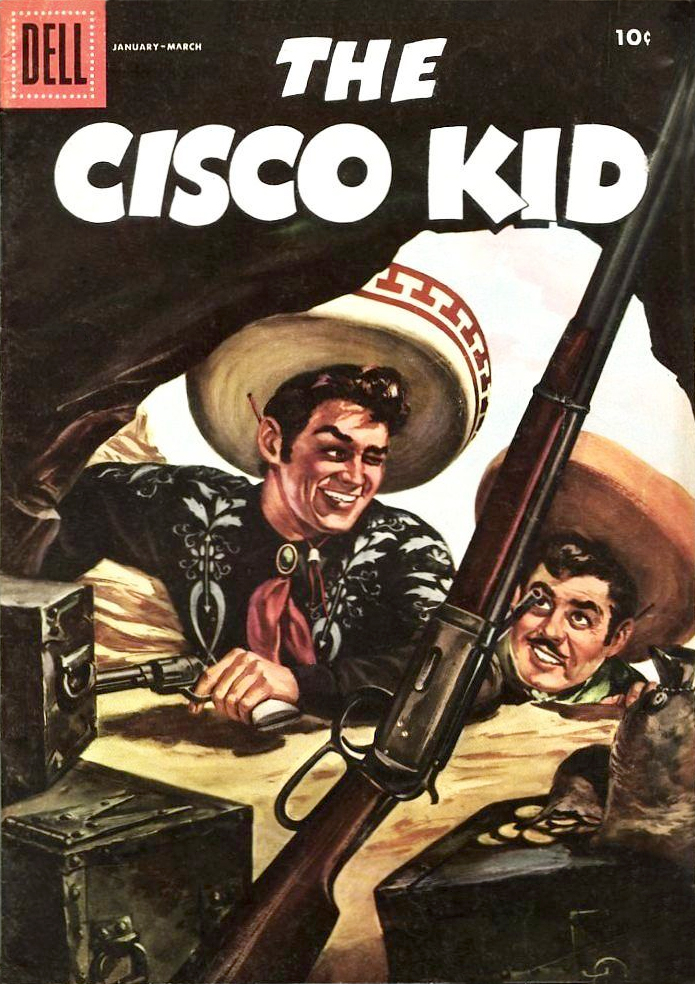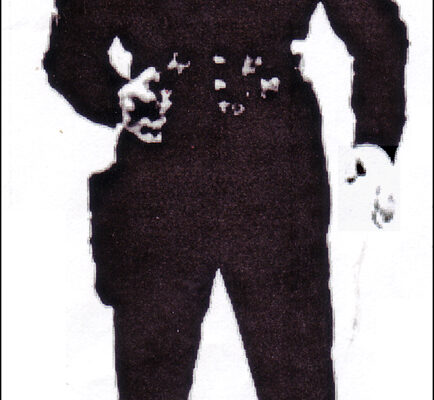Older folks will likely recall the opening theme of television's “The Cisco Kid?” It began with thrilling background music as Cisco and Pancho rode their horses, Diablo and Loco respectively, down a hill, paused briefly and then continued their descent. The narration was “Here's adventure. Here's romance. Here's O. Henry's famous Robin Hood of the Old West. 'The Cisco Kid.'”
Recently, I came across an old newspaper from Sept. 1980 informing readers that Duncan Renaldo, known affectionately as the “Cisco Kid,” who brought law and order to television's Wild West, had died at the age of 76. The actor was survived by his wife, Audrey; daughter, Stephanie; and three sons, Richard, Jeremy and Edwin. A funeral mass and private burial was held at Santa Barbara's Old Mission.

Duncan Renaldo's Popular Depiction of “The Cisco Kid”
The scoop on Renaldo was that he was arrested for illegal immigration in 1934. He had been a sailor on a ship that docked in Maryland in the late 1920s, but it caught fire at the pier and burned, stranding him in the United States. Cisco claimed that he was orphaned at an early age and was unsure where he was born, although he believed it was in Spain. He was actually born in Romania.
President Franklin D. Roosevelt granted him an unconditional pardon the day before he was to be released. Renaldo confessed later that the experience was “the single most interesting, yet tragic time of my life.”

A Dell Comic Book Depicting the Adventures of The Cisco Kid
The year 1940 found the budding actor starring in numerous western flicks, including being selected for the lead role in “The Cisco Kid” movies and four years later the television series. Cisco and his well-chosen sidekick, the good-humored Pancho, portrayed by Leo Carrillo, were cowboys who used their wits more than their guns to bring justice to the Old West.
The Cisco and Pancho characters were somewhat analogous to those of Robin Hood fame. Although the law regarded them as desperados, they secretly defended the weak and helpless, all the while dodging those who misunderstood their noble motives. One movie theatre ad humorously stated that Cisco was “wanted by 100 sheriffs, the U.S. Cavalry, and 500 senoritas.” The handsome, loveable “outlaw,” did his job well in spite of a farcical $5,000 reward hanging over his head.

A Young Duncan Renaldo as He Appeared at the Beginning of His Film Career
The dashing star was best known to America's first television generation for his starring in 156 episodes of “The Cisco Kid” (1949-56) and 164 theatre movies to his credit, including “The Bridge of San Luis Rey (1929),” “Zorro Rides Again” (1937), and “For Whom the Bell Tolls” (1943).
Those of us who fondly recall the “The Cisco Kid” will acknowledge that it was a respectable show. According to Duncan, “Pancho and I never killed anyone on the show. The kids who watched our films could go to bed at night and sport a smile on their faces with no fear of nightmares.”
Throughout the years, Renaldo credited his youngsters for his success. This included prayers from 17,000 young fans who once sent him get-well cards for a speedy recovery from a broken neck that he sustained in a 1953 accident during the filming of a scene.

A 1949 United Artists Theatre Lobby Card for “The Cisco Kid”
The show's memorable closing punch lines after a humorous situation occurred was a drawn out, “Ooooh Panchoooo, followed by “Ooooh Ceescoooo.” After a commercial break, the show concluded with the actors riding up on their horses with Cisco saying, “Goodbye amigos,” followed by Pancho's line, “See you soon, ha.” Afterward, they galloped into the sunset to seek another thrilling escapade for us expectant kids to watch.
To most western fans, the “real” “Cisco Kid” was Duncan Renaldo, although there were several others on radio, television and at movie theatres. The television show’s longevity is credited to the company's initial decision to film all shows in color and put them in syndication, an idea credited to Frederick Ziv, a visionary American broadcasting producer. This was done in spite of the fact that televisions in that era were black and white.
It's time to ride off in the sunset: “Goodbye amigos,” “See you soon, ha.” Those were the wonderful days of yesteryear.

Comments are closed.